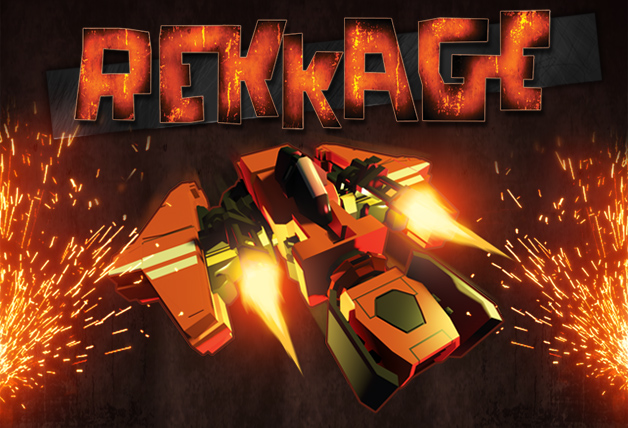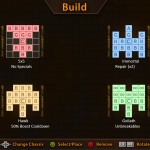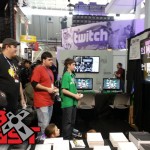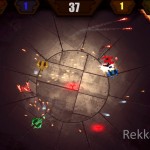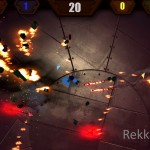Download Rekkage
A multiplayer modular top-down shooter.
Engine
– From scratch, C++
– Scripted in Python
Duties
– Game/Level Design
– Scripting
– UX Design
Time
– 12 months
Team
– 12 members
Rekkage underwent 30+ individual prototypes, two LAN tournaments, a dual-engine parallel development model, and dozens of design, art, and engine iterations.
Below you’ll find a simple developer diary showcasing where the project has been. The project shifted three times, and every time as dramatic as the last. Before the game morphed into a modular, multiplayer top-down shooter, it was all about trains. And before it was trains, it was a 3rd person action game using wind and sand.
Pre-production. Our concept of prototyping was essentially derived from Boyd’s Law, that is, speed of iteration always beats quality of iteration. For the first several months, the prototyping strike team created a cyclone of digital toys, paper prototypes, and other various gameplay systems and models using third-party tools. We first set out to develop a 3rd- or 1st-person action game with sand and wind mechanics, and a few months later we shifted towards a strategy-based action-puzzler themed around trains. The team eventually unified and settled on our final idea after almost four to five months of playtesting and tuning. The engine team was developing our custom engine during this time.
Development. Throughout the course of development, our game suffered no changes as dramatic as our initial ideas. We collaborated in Python on a solid framework for a multiplayer top-down shooter. I crafted a soundscape of over 220+ sound effects which incorporated a dynamic crowd-cheering system that responded to gameplay events (a player wins, and the in-game audience cheers; the final round begins, and the ambient quality intensifies; a special player event such as a near-death experience occurs, and I send a call for a special crowd sweetener). The final product ended up being a rich and varied sound experience.
Reception. Initial audience reaction was astounding. We ended up hosting several tournaments with prizes and showcasing the game at PAX East 2013 and PAX Prime 2013. We also won 6 awards during the DigiPen Awards, including “Best Junior Game in a Custom Engine”, “Best Multiplayer Game”, “Most Addictive Game”, runner-up “Game of the Year”, “Best Junior Technology”, and “Best Physics Technology.”
Suffice it to say, Rekkage was a very dynamic project. Key ideas or lessons that I learned while working on this project included:
- Prototyping a bunch of stuff without deep and thorough analysis can easily turn into a waste of time.
- Unified team direction and cohesion is necessary to avoiding pitfalls later in development.
- “Perfection is the enemy of done.”
- No one knows what will work!
If I could change anything, I would:
- Design a better and more varied game mode for our one level. Alternatively, simply add more game modes. We were stuck with arena deathmatch through playtester consensus, but it could have had more complexity.
- Here are some examples of different game modes/maps that I prototyped:
Game Mode Prototype: Baserace
Game Mode Prototype: Diode
Files
-
Download Rekkage
-
Rekkage GDD
-
Early Milestone Footage
Legacy Files
This is a style/process guide for environments that I wrote before the game idea shifted.
